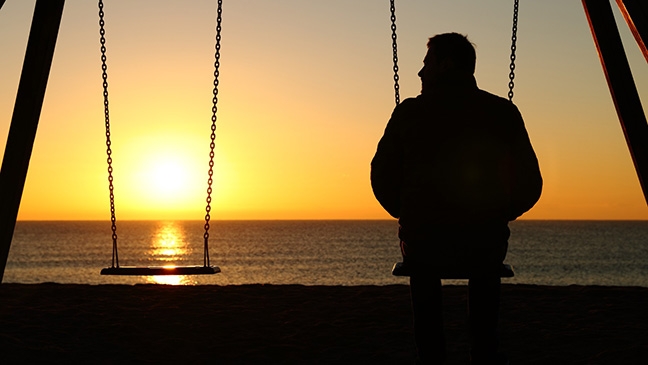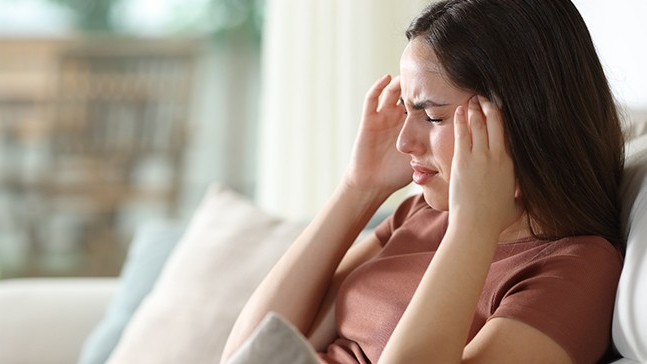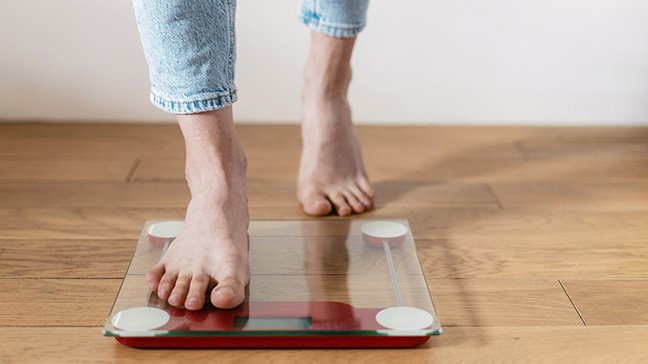- Diseases
- Acoustic Neuroma (14)
- Adrenal Gland Tumor (24)
- Anal Cancer (66)
- Anemia (2)
- Appendix Cancer (16)
- Bile Duct Cancer (28)
- Bladder Cancer (68)
- Brain Metastases (28)
- Brain Tumor (228)
- Breast Cancer (716)
- Breast Implant-Associated Anaplastic Large Cell Lymphoma (2)
- Cancer of Unknown Primary (4)
- Carcinoid Tumor (8)
- Cervical Cancer (154)
- Colon Cancer (164)
- Colorectal Cancer (110)
- Endocrine Tumor (4)
- Esophageal Cancer (42)
- Eye Cancer (36)
- Fallopian Tube Cancer (6)
- Germ Cell Tumor (4)
- Gestational Trophoblastic Disease (2)
- Head and Neck Cancer (6)
- Kidney Cancer (124)
- Leukemia (344)
- Liver Cancer (50)
- Lung Cancer (288)
- Lymphoma (284)
- Mesothelioma (14)
- Metastasis (30)
- Multiple Myeloma (98)
- Myelodysplastic Syndrome (60)
- Myeloproliferative Neoplasm (4)
- Neuroendocrine Tumors (16)
- Oral Cancer (100)
- Ovarian Cancer (170)
- Pancreatic Cancer (166)
- Parathyroid Disease (2)
- Penile Cancer (14)
- Pituitary Tumor (6)
- Prostate Cancer (144)
- Rectal Cancer (58)
- Renal Medullary Carcinoma (6)
- Salivary Gland Cancer (14)
- Sarcoma (236)
- Skin Cancer (294)
- Skull Base Tumors (56)
- Spinal Tumor (12)
- Stomach Cancer (60)
- Testicular Cancer (28)
- Throat Cancer (90)
- Thymoma (6)
- Thyroid Cancer (98)
- Tonsil Cancer (30)
- Uterine Cancer (78)
- Vaginal Cancer (14)
- Vulvar Cancer (18)
- Cancer Topic
- Adolescent and Young Adult Cancer Issues (20)
- Advance Care Planning (10)
- Biostatistics (2)
- Blood Donation (18)
- Bone Health (8)
- COVID-19 (362)
- Cancer Recurrence (120)
- Childhood Cancer Issues (120)
- Clinical Trials (622)
- Complementary Integrative Medicine (24)
- Cytogenetics (2)
- DNA Methylation (4)
- Diagnosis (226)
- Epigenetics (6)
- Fertility (62)
- Follow-up Guidelines (2)
- Health Disparities (14)
- Hereditary Cancer Syndromes (122)
- Immunology (18)
- Li-Fraumeni Syndrome (8)
- Mental Health (118)
- Molecular Diagnostics (8)
- Pain Management (62)
- Palliative Care (8)
- Pathology (10)
- Physical Therapy (18)
- Pregnancy (18)
- Prevention (890)
- Research (388)
- Second Opinion (74)
- Sexuality (16)
- Side Effects (602)
- Sleep Disorders (10)
- Stem Cell Transplantation Cellular Therapy (216)
- Support (404)
- Survivorship (322)
- Symptoms (184)
- Treatment (1768)
How sleep affects your health – and how to get more of it
7 minute read | Published September 28, 2023
Medically Reviewed | Last reviewed by an MD Anderson Cancer Center medical professional on September 28, 2023
‘Hygiene’ typically draws to mind examples such as hand washing, showering or brushing teeth. But did you know there is also sleep hygiene?
Dave Balachandran, M.D., medical director of MD Anderson’s Sleep Center, uses the term sleep hygiene to describe healthy sleep habits.
Here, Balachandran shares several sleep hygiene suggestions and discusses the basics of sleep and its impact on health.
What causes sleepiness?
“Sleep is derived by the brain. There's a set of neurons, or brain cells, that create sleep,” Balachandran says. “They have two functions: to activate sleep and activate keeping you awake.”
These neurons work together with the circadian rhythm.
“Our circadian rhythm tells us on an approximately 24-hour cycle when it is time to go to sleep and when it is time to stay awake,” Balachandran says.
How much sleep do we need?
“Seven to eight hours seems to be the ‘just right’ point that is optimal for health,” Balachandran says. “There are some people who may need less and some people who may need more. Like with everything, that's sort of the average for an adult."
Not sure if you are getting enough sleep? Balachandran suggests asking yourself the following questions:
- Are you able to function like you would like to during the day when you're not sleeping?
- Are you mentally alert?
- Are you cognitively at your best?
- Are you not feeling the need to take naps?
- Are you able to avoid falling asleep at inappropriate times? (ex: while driving)
“If you can answer yes to all of those questions, then you are getting sufficient sleep for you," he says.
On the contrary, if you are sleeping for more than nine hours a night, you may be getting too much sleep. Balachandran says that this could be excessive sleepiness, which is linked to poor health and earlier mortality.
To determine exactly how much sleep you are getting, Balachandran suggests using a sleep diary or activity tracker.
How does sleep impact health?
After a bad night of sleep, you might feel groggy, unfocused or simply under the weather.
“The immune system is generally weaker with insufficient or irregular sleep. That's why people who are sleep deprived are more susceptible to things like colds,” Balachandran says.
Balachandran says this may be linked to damage caused by inflammatory cytokines, a type of cell in the immune system.
Overarching sleep habits may also play a role in health outcomes such as heart disease, heart attacks, hypertension, strokes and cancer.
“There's a lot of data that says if you sleep deprive people or animals, they have worsened health outcomes,” he says. “There's increasing data that really disturbed or short sleep in particular can even lead to things like cancer.”
With flu season on the horizon, Balachandran also notes the importance of a good night’s sleep after a vaccination. He says there have been several studies in which participants received vaccines and then slept for either four hours or eight hours. Results showed that participants who slept for eight hours had greater antibody production than those who only slept for four hours.
“Sleep has a lot of functions and we're still learning,” Balachandran says.
Is there an ideal bedtime?
Early birds and night owls can call a truce; Balachandran says people get the same benefits from sleep whether their bedtime is 8 p.m. or 2 a.m.
“If you were living in a cave all by yourself, it wouldn't matter when you slept,” Balachandran says.
Even more important than a specific bedtime is setting — and sticking to — a time to go to bed and wake up each day.
“Being very regular with that helps train your circadian rhythms and helps your brain understand this is the time to sleep, this is the time to wake up,” Balachandran says. “That's probably the most important one thing you can do to improve your sleep.”
Daily routine also plays a large role in the quality of sleep at night. Scheduling activities such as meals, workouts and socializing can provide a sense of regularity that fosters better sleep.
"If you can build a schedule for yourself, your whole wake-sleep cycle will potentiate itself and make itself stronger and keep you in that rhythm,” Balachandran says.
Is it possible to make up for lost sleep?
While it would be awesome to save extra sleep for the next time you need to pull a late night, unfortunately, sleep doesn’t work like that.
“You can’t bank sleep. You can’t pre-sleep in order to stay up later and not have the sleepiness,” Balachandran says.
While you can’t bank sleep, you can still go into sleep debt.
“Every minute that you're awake, you're starting to accrue a little bit of sleep debt, and eventually that has to be paid off,” Balachandran says.
This might mean taking a nap or getting more sleep the following night.
“If you're someone who usually needs seven hours of sleep and you only slept four hours the night before, it’s not one-to-one necessarily, but you’re going to have more sleepiness and more pressure to fall asleep,” Balachandran says.
Tips for getting quality sleep
Get out of bed if you can’t sleep
It might seem counterintuitive, but if you are having trouble sleeping, don’t stay in bed and count sheep. Instead, Balachandran recommends doing a relaxing activity until you feel sleepy again. This might look like reading, journaling or working on a puzzle.
"What that does is it prevents you from staying in bed and worrying about not sleeping and having random or disturbing thoughts that are just going to keep you more awake,” Balachandran says.
Don’t eat heavy meals before bed
Anyone who has taken an amazing post-Thanksgiving meal nap might be surprised to learn that eating a heavy meal right before bed isn’t a hack for getting better sleep.
In fact, Balachandran says eating a large meal before bed may worsen conditions including gastroesophageal reflux, acid reflux and heartburn.
He also notes that studies have shown what you eat before bed and how close to bedtime you eat can impact factors including how long it takes to fall asleep and whether you wake up overnight.
Balachandran says most experts recommend eating dinner between two and four hours before bed.
If you are hungry for an after-dinner snack, avoid options that are acidic, caffeinated, spicy or high in fat.
Stop drinking caffeine after noon
Caffeine works by blocking adenosine, a chemical in the brain that causes sleepiness. Thanks to caffeine’s long half-life, that sleepiness-blocking effect can stick around for a while. In other words, that cup of Joe that seemed harmless at 2 p.m. might make it harder for you to fall asleep come bedtime.
If that scenario sounds familiar, enjoy caffeinated beverages in the morning and switch to decaf come noon.
Limit screentime before bed
Our phones, computers, televisions and other devices provide us with information, connection and funny videos, but they also emit blue-green light. “It shuts off your melatonin secretion, and that can impair your ability to sleep,” Balachandran says.
While he notes that many devices offer a night mode that filters blue-green light, he says the best option for sleep hygiene is avoiding screens before bed altogether.
Design a bedtime routine
We’ve talked a lot about what not to do before heading to sleep. Likewise, how you spend time before bed can have an equally significant impact.
Balachandran notes that the brain loves routine, and a bedtime routine that includes your favorite wind-down activities can set the scene for a night of restful sleep.
“That could be getting dressed for bed, brushing your teeth, reading a little bit, praying, keeping a journal, meditation,” Balachandran says. “It tells your brain this is the time that I do these things, including sleeping.”
Keep the bedroom dark and cool
If you’ve ever flipped your pillow over to lie against the cool side, you likely understand the appeal of sleeping in a cooler bedroom compared to a warmer one. “That’s more conducive to sleep than really hot rooms,” Balachandran says.
Likewise, keeping bedrooms dark in the evening may also aid in drifting off. If your bedroom isn’t dark enough for your liking, try out an eye mask or light-blocking curtains.
Associate your bedroom with sleep
To help your brain create a stronger association between your bedroom and sleep, Balachandran recommends only using your bed for sleep and sex.
“Don't make that the place where you watch TV or the place where you do other activities. You want to create a really strong association between the bed and bedroom and sleep.”
Request an appointment at MD Anderson online or by calling 1-844-737-0154.

Going to bed at the same time every night and waking up at the same time every morning is really important.
Dave Balachandran, M.D.
Physician





